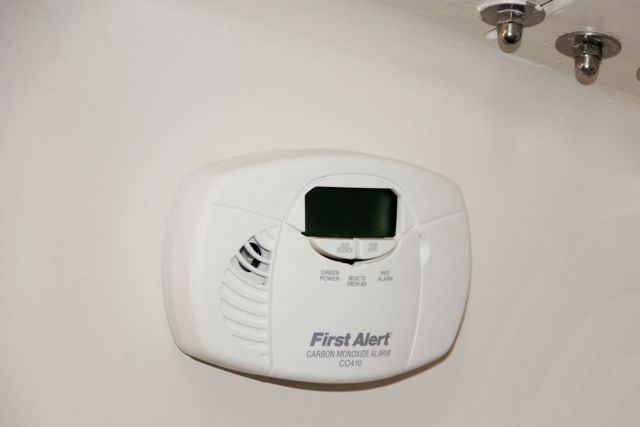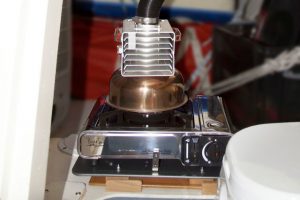5th October: CO alarm goes off

 Last night I decided to sleep in the boat (I frequently do even when it is at the jetty, I like looking out in the morning at the river). During the evening I fell asleep while watching TV in the cabin using my laptop. When I awoke, the Pan 2000 cabin heater had run out of butane and gone out. I’d only had it on very low because it was quite mild outside. I turned it off and turned in for the night.
Last night I decided to sleep in the boat (I frequently do even when it is at the jetty, I like looking out in the morning at the river). During the evening I fell asleep while watching TV in the cabin using my laptop. When I awoke, the Pan 2000 cabin heater had run out of butane and gone out. I’d only had it on very low because it was quite mild outside. I turned it off and turned in for the night.

A couple of hours later I was woken by the CO alarm. It was indicating 80ppm which is relatively low – “likely to cause a headache after a few hours exposure”. However the alarm integrates one’s exposure to CO and must have decided I’d had enough; no doubt it takes into account that I might be pregnant! I silenced the alarm and opened the companionway which soon reduced the CO level to below what the alarm displays.
Normally the Pan2000/butane stove combination does not register any CO on the alarm display. I assume that before it went out the butane stove got so low that there was not enough heat to take the exhaust gases up the chimney… it was quite a windy night and the air was mild. The amount of gas entering the cabin had not been enough to immediately trigger the alarm but, with the cabin closed apart from the ventilation around the hatch and the forepeak ventilator, the gases had remained in the cabin.
I mention the incident simply to illustrate how easy it is for a device to create CO in the cabin and the value of a integrating CO alarm. At other times the alarm is a nuisance – for example with a following wind the outboard exhaust can set it off and I take the batteries out of it. This is a reminder to always put them back!
